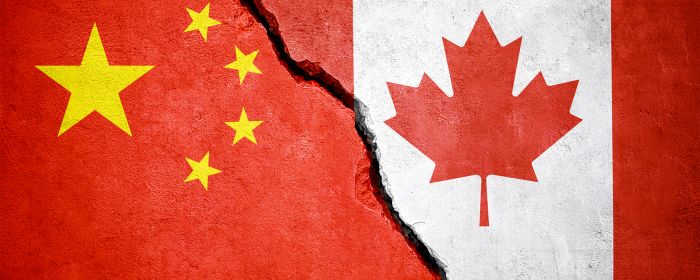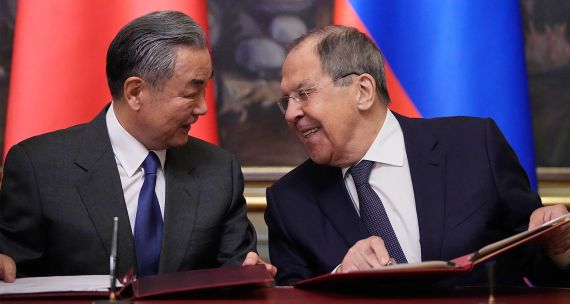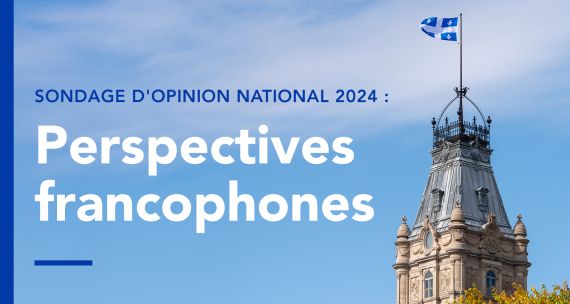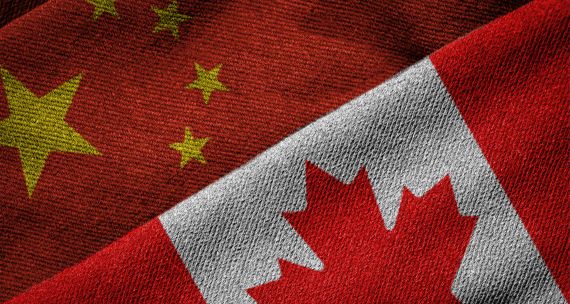The time has come for a reset of our relationship with China. The mantra that "China's robust economy is soon to be the largest in the world" is compelling; it is debatable but, if true, comes with a cost.
Economic Considerations
The enduring trope that "China's robust economy is soon to be the largest in the world" is precisely what led Canadian governments to rush to open up the Canadian market and investment opportunities to China and is at the root of many of today's problems with China.
In fact, the drummed-up prospects for trade and investment have not materialized. While government-controlled companies in China were allowed to invest in a number of our core assets, Canadian private sector companies have been barred from investing in sectors China considers central to its economy. Trade with China has resulted in our historically large and consistent merchandise trade surpluses turning into costly trade deficits, which we can ill afford.
Contrary to popular belief, China is not the world's second-largest economy. According to the World Bank, China's 2019 GDP of US$14.342 trillion is well behind the United States at US$21.374 trillion. Lesser known is the fact that the EU comes second behind the U.S. with a GDP of US$15.592 trillion. Regarding total imports from worldwide sources, China, at US$2.077 trillion, is behind the U.S. (at US$2.568 trillion), and both are dwarfed by the EU import market of US$4.548 trillion. While not wishing to diminish its economic vitality and potential, it is noteworthy that China has a steep climb ahead to surpass the U.S. as the world's largest economy, let alone the EU as the largest importer of goods worldwide.
In Canadian terms, the promised advantages of expanded trade with China have simply not benefited Canada. Twenty years ago, we had an overall global merchandise trade surplus of C$56 billion; by the end of 2019, we ended up with a deficit of C$8.6 billion, a precipitous decline entirely due to Canada's deficit with China, which by the end of 2019 exceeded C$51 billion.
We urgently need to understand how our past governments allowed this to happen. The present government cannot be blamed for the policies of past governments. In 1988, our trade with China generated a surplus of more than C$2.6 billion, which by 1992 had become a deficit of C$257 million, ballooning to over C$32 billion by the end of 2008 and surpassing C$51 billion in 2019. We are not alone, as other Western countries have endured a similar fate. Similarly, our consumers have an insatiable appetite for low-cost and increasingly high-quality products pumped out by China.
Thankfully, our merchandise trade with the U.S. has been strong and positive for more than 70 years; in 2019, it generated a surplus of C$141 billion. From the first free trade agreement with the U.S. in 1947, through the Auto Pact in 1965, NAFTA in 1994, and now CUSMA in January of 2020, our merchandise trade with the U.S. has been expanding, consistently generating large surpluses.
The importance of the China market maybe, in fact, an illusion. The grim reality of the deficits in trade with China and the claim that China is our second-largest export market is underlined by the hard numbers. The EU buys over 10 per cent of our exports, second to the U.S., which buys around 75 per cent – while China buys a meagre four per cent. So, where, we must ask, does our trade future lie?
Canada's national interest should be fact-based, driven by a combination of economic interests and security considerations.
We would be far better off increasing our trade ties with friendly Asian nations such as Japan, South Korea, Taiwan, the Philippines, Indonesia, Vietnam, Malaysia, Singapore, Thailand, Bangladesh, and India. Combined, these markets substantially exceed the Chinese market and embracing them will not only substantially reduce our excessive deficits with China but provide long-term economic benefits vis-à-vis a strategic foreign policy of broad diversification.
Reversing this very costly trade relationship with China will require more than government actions; our academics, business leaders, and individual Canadians need to assist the government in this gargantuan task. By many measures, the Chinese government has not behaved as a true friend to Canada, and we should deal with Beijing on a strictly business basis, as we should have been doing from the very beginning. In sourcing imports from other countries, we are not boycotting China-made goods but simply reducing deficits we cannot afford.
Businesses like Canadian Tire, Home Depot, and Walmart could lead by diversifying their buying away from China. For its part, the federal government should be imposing tariffs on Chinese imports per WTO rules to generate desperately needed revenue to help finance the unemployment benefits and expanding health-care costs of fighting the pandemic.
Security Considerations
Recently, Huawei Canada pledged to refrain from spying. However, such assurances are hardly reassuring considering that Beijing has the authority to order any Chinese company anywhere in the world to engage in espionage. And they're less reassuring in light of revelations that Beijing has used other platforms, such as WeChat and TikTok, for surveillance and manipulation of public opinion in other countries. As some in our own intelligence services have indicated, allowing Huawei to participate in our 5G network would seriously undermine our national security. It may be a moot point in any case because Bell Canada, Telus, and Rogers have decided not to use Huawei 5G technology.
Some in Canada are arguing for the release of Huawei CFO Meng Wanzhou in ex-change for the imprisoned Canadians Michael Kovrig and Michael Spavor out of con-cern for the two Michaels' wellbeing. While certainly understandable, capitulation here would ultimately put any Canadian in China at risk. As a nation governed by the rule of law, it is imperative for Canada to leave the Meng case to be decided by the courts.
The handling of domestic affairs by the present Chinese government should also give us pause when considering any rapprochement. As has been well documented, the Xi regime is actively engaged in the oppression of its own minorities through euphemistically named "re-education programs" in Xinjiang. Over one million Uyghur Muslims have been imprisoned in detention camps. In what are actually labour camps, tens of thousands of Uyghurs are forced to work in factories that produce sought after brands.
As recent polling by the Asia Pacific Foundation of Canada has confirmed, Canadians place the protection of human rights above the economic benefits of engagement with China.
President Xi's militaristic expansionism in the South China Sea, which flagrantly violates international law, its imposition of the National Security law and the repression of the democracy movement in Hong Kong, its increased intimidation of Taiwan, its question-able financial lending in the global south, and its nefarious cyber intrusions the world over should serve as ample evidence that China is indeed emerging as a colonizing power.
The Canadian public has woken up to the realities of the Chinese Communist government. This year, an Angus Reid poll found that just 14 per cent of Canadians have a positive view of China, an Ipsos poll found that 82 per cent believe Canada should rely less on trade with China, and an APF Canada poll found that only 35 per cent of Canadians (down from 60% in 2018) agree that the growing economic power of China is more of an opportunity than a threat.
With a growing number of Canadians indicating it wants a reset on Canada-China relations, it is hard to imagine that a responsible democratic government, especially a mi-nority government, would ignore such overwhelming public opinion – not to mention warnings from within its own intelligence agency.
Sadly, China's government has repaid our friendship and our opening up to its exports and investments with harsh rhetoric and hostage diplomacy. International economic and security relations should have broad public support. And issues of such economic and security importance, like a China reset, must not be partisan but include consultation and input from all vested parties.
For the government to act constructively, all levels of our governments, civil servants and elected representatives, academics, and business and labour leaders must internalize the hard facts that:
- Going from a surplus to constantly increasing massive trade deficits is not a way to successfully diversify or expand our exports; and, being heavily reliant on China as an Asian export market will continually put us at undue commercial and strategic risk.
- Opening up investment opportunities allowing China to acquire some of our core assets, while China's government is denying reciprocal investment opportunities to Canadian businesses, confirms the unwillingness of China's Communist government to treat Canada as Canada treats China.
- The mistreatment of the two imprisoned Michaels – locked up, often in isolation, denied visitation and legal representation, while Ms. Meng is free on bail, with a battery of lawyers of her choice, living in her palatial house in Vancouver, free to move about visiting friends or shopping – confirms once and for all, how China's Communist government views reciprocity.
This is clearly a wake-up call and, as indicated by the polling, Canadians are more wary of engagement with the new, assertive China.
The desire of a great majority of Canadians to keep a safe distance from China's Communist government does not negate the fact that we recognize that Canada has benefited from almost two million immigrants from China. Those hard-working and enterprising new Canadians contribute to our prosperity, and their culture enriches our collective culture.
Canada and the entire world should applaud those Chinese people who have made China's economic miracle possible, but it is the Chinese people, and not the Communist party, who deserve our applause. As China's government grows increasingly oppressive at home and abroad, greater numbers of immigrants from China will be attracted to free and law-abiding Canada. Speaking as a refugee from another long ago oppressive Communist government, I am one of the millions of refugees from economically, politically, or religiously oppressive regimes who have found freedom and opportunity in Canada, for which we are deeply thankful, and proud to be called Canadians.
Considering the severity of the situation with which we as a nation are currently con-fronted – an out-of-control pandemic, a shell-shocked economy, huge job losses, and apocalyptic climate change-induced fires on our southern border – any question of re-setting the relationship with China must be one faced head-on, with all the facts, and with our eyes wide open.
A New Way Forward for Canada
Our first obligation is to redirect our focus away from illusory promises of economic gains by broadening engagement with Communist China. Instead, we need to be awake to our own challenging, yet hugely promising, opportunities to open our vast and undeveloped geographic areas for our young people to concentrate on and benefit.
Ours is the second largest country on earth; we are natural resources-rich, with an enormous landmass, plentiful freshwater, and large agricultural lands with great potential for expanded food production, bounded by the Atlantic, Pacific, and Arctic oceans. Our strong academic tradition supports a solid educational system, with first-class universities generating a well-educated labour force. Herein lies our promise.
Canada is a powerful magnet, attracting large numbers of immigrants and refugees, including some of the world's brightest and most energetic young people. This is not just because of Canada's economic potential, but also because we are a free country, safe-guarded by the rule of law administered by an independent judiciary while welcoming diversity, with living proof that diversity enriches us and makes us better. Yes, there have been and will be frictions as we adjust to each other, rightfully resisting any necessity of fitting into anybody's idea of the "ideal" Canadian. Instead of dwelling on differences and difficulties, which fade in the context of the quality of life and potential for betterment we all share, let us focus on our future. That is our obligation to our young people, on whom we rely to build a better and more prosperous Canada for us all.
At this chaotic time, there may even be a silver lining to the convergence of our struggles with China and the debilitating effects of the global pandemic. This has exerted additional urgency to solve the many problems confronting us, including climate change, wealth disparity, internal divisions, and rising unemployment. A piecemeal solution will not do, and this is no time for never-ending studies. Instead, the solution can come through remaking or reinventing ourselves, dedicating ourselves to realizing a way forward for Canada so that we can find a way to deal with all the accumulated problems.
The vision of our founders to create a country from the Atlantic to the Pacific has been realized. They took a significant risk in building a trans-Canada railway to connect us all and to make new immigration possible by opening up central Canada, the prairies, and finally, resources-rich Pacific Canada. We should be just as bold and sure of ourselves as our founders by expanding their vision to define and realize the obvious opportunities current global exigencies present to us for building Canada into a country from Atlantic to Pacific to the Arctic.
With increasing global warming, vast spaces of Northern and Arctic Canada are attracting the attention of doers. The recently announced A2A railway from Alaska to Alberta is concrete proof that enterprising people with a vision will risk their own capital on large projects with a realistic expectation of success. This is a clarion call to the Canadian government, business, and labour to initiate infrastructure projects to open up the vast areas which global warming is making increasingly more hospitable, areas containing enormous natural reserves that can eventually be both developed and processed in Canada for export through ports to be built for navigation along the Northwest Passage, by far the shortest distance to the world's markets. Such projects would support increasingly large immigration, including as a by-product (and consistent with our values) new opportunities for increasing numbers of displaced refugees from around the world – all of which would substantially expand our economy and thereby justify the dedication of all needed resources.
As far as China's government is concerned, we would do well to heed the prescient words of the late Deng Xiaoping, the architect of China's economic achievements, who, in his address to the United Nations in 1974, said: "If one day China should change her color and turn into a superpower, if she too should play the tyrant in the world and everywhere subject others to her bullying, aggression, and exploitation, the people of the world should identify her as a social-imperialism, expose it, oppose it, and work together with the Chinese people to overthrow it."




